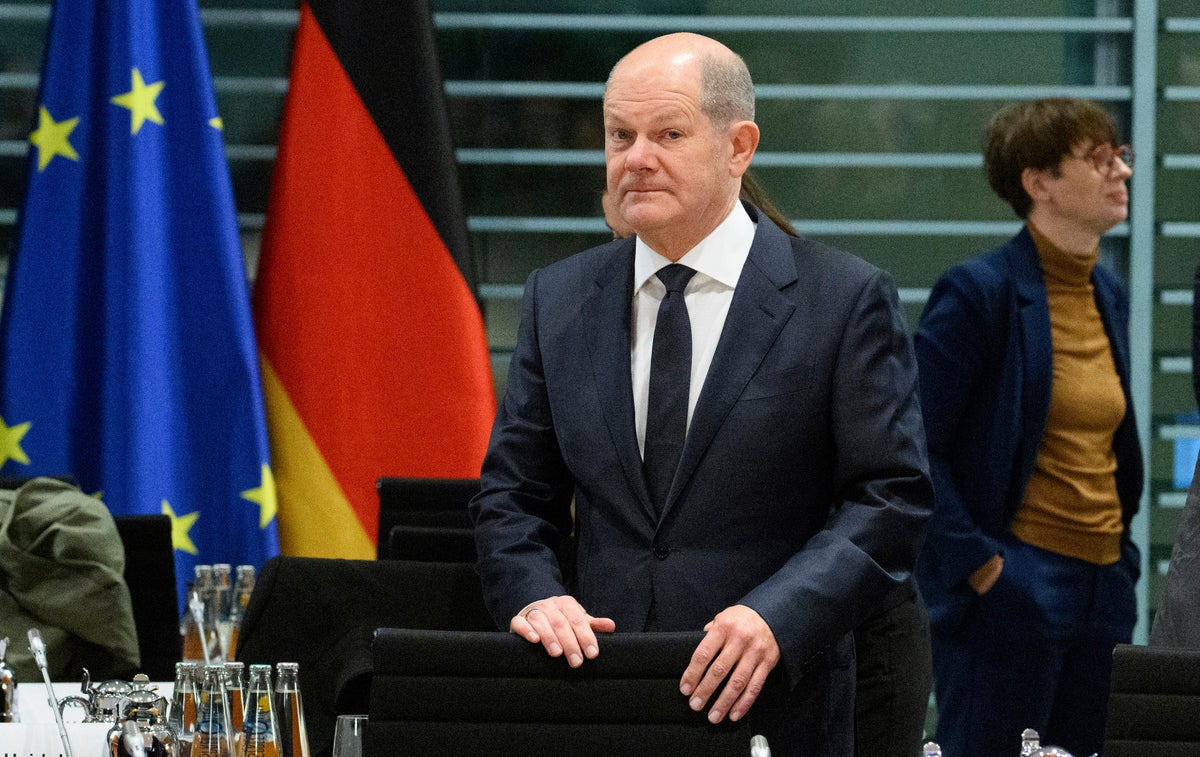
New, stricter measures to curb the high number of migrants coming to Germany were agreed by Chancellor Olaf Scholz and the 16 state governors in the early hours of Tuesday, reaching a compromise on an issue that has become a huge political problem for the government and a hot-button topic in society.
The new measures include speeding up asylum procedures, benefit restrictions for asylum seekers and more financial aid from the federal government for the states and local communities dealing with the influx.
Speaking early Tuesday after an overnight meeting that lasted several hours, Scholz called the agreement “a historical moment” — a remark that showed how much of a burden the topic had become for the government.
Shelters for migrants and refugees have been filling up in Germany for months, and Scholz, who faces enormous pressure from the opposition and elsewhere to halt that trend, has said that “too many are coming.”
The number of new asylum applications for the year to date was around 73% higher at the end of September than in the same period last year, official statistics show.
Germany has also taken in more than 1 million Ukrainians arrive since the start of Russia’s war in their homeland.
Over recent weeks, there had been a flurry of government activity, including legislation to ease deportations of unsuccessful asylum-seekers, to stiffen punishment for smugglers, to allow asylum-seekers to start working sooner, and to introduce temporary checks on the Polish, Czech and Swiss borders.
The federal and state governments agreed early Tuesday to change the system for financing the costs for the asylum seekers. Starting next year, the federal government will pay an annual lump sum of 7,500 euros ($8,000) for each asylum seeker and no longer a total annual sum of around 3.7 billion euros.
Scholz called the reform a “transition to a breathing system” and said that “with rising numbers there is more money, with falling numbers there is less.”
Asylum seekers are also to receive at least part of their benefits as credit on a payment card, meaning they will get less cash in future.
Some state governors had called for a new system of conducting asylum procedures outside of Germany to keep the migrants from arriving in the first place, but that measure didn't pass. However, the federal government said it would examine whether asylum procedures outside of the EU are possible.
In other measures, asylum procedures are to be processed faster than before, and asylum applications from people coming from countries with a recognition rate of less than 5% are to be completed within three months.
The controls that Germany established at its borders with Switzerland, the Czech Republic, Poland and Austria are to be extended, but the time period was not clear.
The state governor of Hesse, Boris Rhein, said that the new measures were going in the right direction.
“However, it is also clear that a path consists of many steps and that further steps must of course follow," he said.
More than 250,000 people applied for asylum in Germany in the period from January to September, compared to more than 130,000 in the same time period last year.
The majority of asylum seekers come from Syria, Afghanistan and Turkey.







